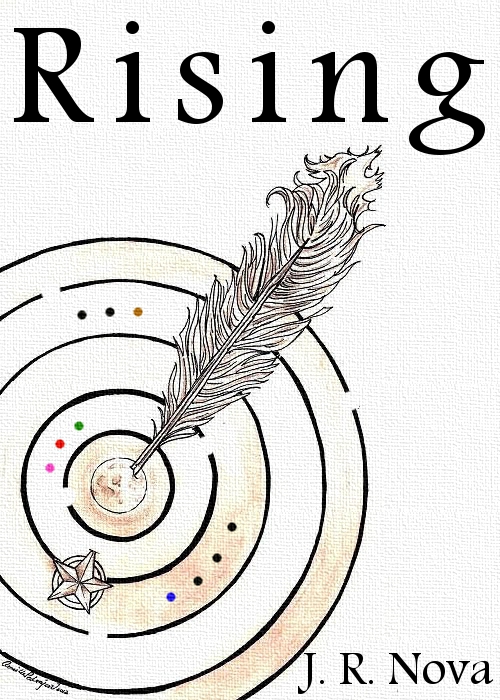One of my biggest problems
in recent years (prior to 2012) was a lack of focus on whichever
writing project I was working on. Writing a rough draft was the easy
part, the hard part was finishing any of them. I wrote five novels in
a six year period. I finished none of them.
There were several reasons
for this. One was the psychological problem of being afraid of
success. I felt that if I actually finished any of these novels I
would have to take on the responsibility of being a published author,
which was very daunting to my young mind.
Then there was my severe
perfectionism; I thought I would fail to make any of these books
perfect so I could not begin to try.
Another problem I faced
was that I could not maintain my attention on any one project; I
would spend three months on a novel, finish the rough draft, take a
break that should have lasted only a week or two but would turn into
months where I slowly but surely drifted away into other uncompleted
work.
In October of 2011 I
decided that, once and for all, I would change my ways. I made
finishing more important than being perfect, and I made it a point to
come back to my novel over and over, day after day.
What I managed to gain was
consistency, and though I cannot say I wasn't distracted now and
again by laziness, procrastination, or other stories, I stayed the
course until my novel was published in the Spring of 2012.
Novels written: 6
Novels published: 1
I was getting somewhere!
In the Summer and Fall of
2012 I hit the same roadblock I had always hit before. On my way to
writing the second novel of my series, I got heavily sidetracked in
another project and then quit writing for a couple of months. Now I
am writing again and have been since late last year and I'm using the
power of consistency to pull me along.
Consistency is forming a
solid habit of doing one thing regularly.
In Part I, I talked about
how consistency moves in cycles, and I've found that using this
process with a purpose has been to my advantage. Instead of
writing day in and day out for weeks at a time as I had done when I
was younger, which always resulted in writer's block after a month or
two, I now consciously take time off from writing. I avoid writing on
weekends and every month or two I may take off a longer period of
time.
Creativity can seem
infinite but it can be depleted in the short-term. Consistency is a
regularity, not necessarily a constant. Taking mandatory rest days
off from writing has helped me come back the next day or the next
week with a blazing excitement to continue writing. This is what rest
does for the mind, and why even though I can miss a few days here and
there, overall I keep moving forward.
A major change I've made
has been in my perspective. I've broken down writing novels into a
yearly venture. A year can be both a very long and a very short
amount of time, but for writing and publishing a single novel, a year
offers almost everything I may need. A year is long enough that I can
take breaks from writing every couple of months for a couple of weeks
and still stay on track. It is long enough that I can write three or
four drafts within its time-frame.
Writing just 1,000 words a
day I can write 70,000-90,000 words in three months. I can then
rewrite that over the next three months, and edit it in the third
three-month period. This leaves me, with appropriate planning along
the way, three additional months to do nothing—using this time to
recharge, or to work on another project.
One novel a year for ten
years will give me a considerable body of work. Some writers are
overnight successes with one or two books, but most of us must get
down in the trenches and don't find success until we
hit double-digits in published works. It can be a long road, but this
is what I mean by consistency. Spending those ten years writing
stories, getting to know other writers and readers, studying the
craft, learning the marketing and business side of the writing
industry—in other words simply by doing what writers do—success
becomes realistic.
Success for me would be
supplementing my income or, if I'm lucky, making a thousand or two
thousand dollars a month which would afford the lifestyle I hope to
live. With consistency, I could have this when I'm older, when I will
value the time the most.
I cannot afford to grow
discouraged and quit now that I've started, and I cannot afford to
get sidetracked by something else. Writing this way does not require
a great time commitment, but it does require that I write five days a
week for an hour or two a day.
It'll be easier if I enjoy
this, if I can make it play instead of looking at it as work.
It'll be easier if I don't
care to be perfect. It'll help that I embrace success.
But the most important
thing is to do it.










